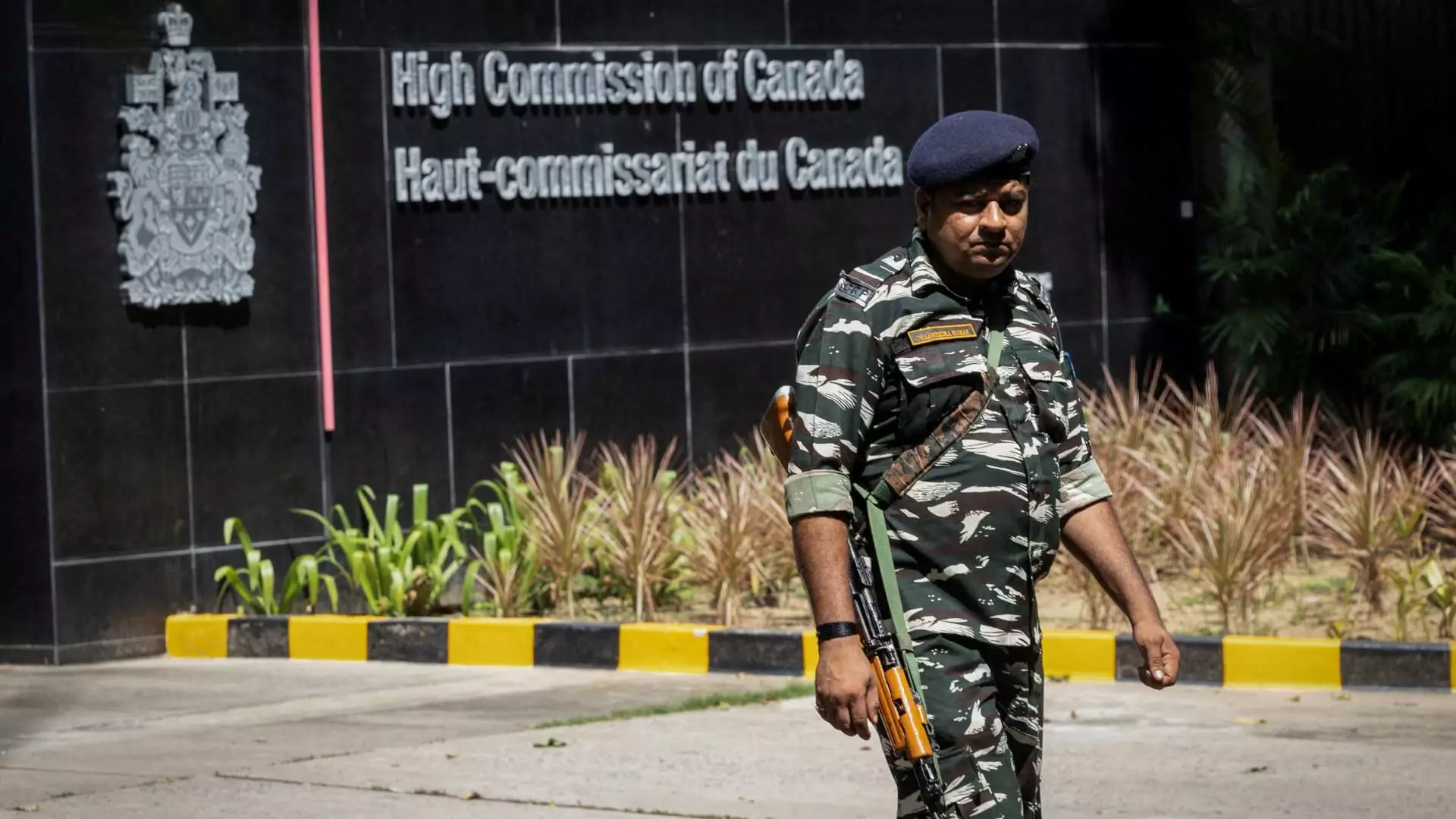India expelled a senior Canadian diplomat on Tuesday in response to what it called “absurd and motivated” claims that New Delhi had a part to play in an extra-judicial slaying of a Sikh activist in Canada. Prime Minister Justin Trudeau had informed the parliament in Ottawa on Monday that Canadian intelligence agencies had been actively pursuing credible links between Indian government agents and the murder of Hardeep Singh Nijjar, a Canadian Sikh community leader who was killed on June 18 outside a Sikh cultural center in British Columbia.
Shifting Focus
In a strongly worded statement, India’s Foreign Ministry dismissed the allegations as unsubstantiated and accused Canada of attempting to shift the focus away from the threats posed by Khalistani terrorists and extremists who have found shelter in the country. India argued that the Canadian government’s failure to take action against these individuals has long been a cause for concern. The statement condemned the inaction of the Canadian government on the matter and emphasized that it poses a threat to India’s sovereignty and territorial integrity.
Tit-for-Tat Expulsions
In a retaliatory move, India expelled a senior Canadian diplomat after summoning Canada’s High Commissioner to the country. This occurred just hours after Foreign Minister Melanie Joly announced that Ottawa had expelled a top Indian diplomat. The escalating tension between the two countries highlights the seriousness of the situation and the deep concerns expressed by both sides. Canadian leaders stopped short of explicitly accusing India, but they stressed the need for Indian authorities’ full cooperation in the investigations and underscored that any foreign involvement in the killing of a Canadian citizen on Canadian soil is an unacceptable violation of sovereignty.
The allegations and subsequent expulsions have caught the attention of other countries as well. Australia expressed deep concern about Canada’s accusations, while the United Kingdom declared that it is in close contact with its Canadian partners regarding the matter. The issue has implications beyond bilateral ties between India and Canada, as it complicates Canada’s efforts to deepen economic ties with India, as well as its broader attempts to reduce reliance on China. Prior to the recent Group of 20 nations’ leaders’ summit, talks on a proposed trade treaty between Canada and India had been put on hold.
Challenges of Sikh Activism
Sikh activism in Canada has long been a contentious issue in the relationship between the two countries. The Sikh diaspora in Canada represents about 2% of the country’s population, and their activism has complicated Canada’s diplomatic efforts with India. While Canada views peaceful Sikh activism as an expression of free speech, India sees it as an endorsement of Sikh separatism, which it perceives as interference in its domestic affairs. The video footage of a parade float in the Canadian city of Brampton that glorified violence and vengeance in its depiction of the 1984 assassination of Indian Prime Minister Indira Gandhi further strained the relationship. India’s foreign ministry expressed deep concern over the sympathy expressed by Canadian political figures towards such elements and called on the Canadian government to take legal action against anti-India elements operating from their soil.
Rebuilding Trust
The complex relationship between India and Canada requires addressing the concerns and grievances of both sides. Canada must strive to demonstrate its commitment to India’s sovereignty and its determination to combat any illegal activities taking place on its soil. It should work towards a better understanding of how to balance the rights of the Sikh community in Canada with the sensitivities of the Indian government. India, on the other hand, should provide credible evidence to support its claims and actively cooperate with Canada in its investigations. Open and transparent communication between the two nations is crucial for rebuilding trust and strengthening bilateral ties.
The tragic murder of Hardeep Singh Nijjar has exposed the complexities and challenges in the relationship between India and Canada. Both countries need to engage in constructive dialogue to address the contentious issues surrounding Sikh activism and find common ground based on respect for sovereignty and the rule of law. It is essential for Canada to take action against any form of illegal activity taking place within its borders, while India should provide sufficient evidence to support its claims. Only through mutual understanding and cooperation can the two nations move forward and build a stronger and more harmonious relationship.


Leave a Reply